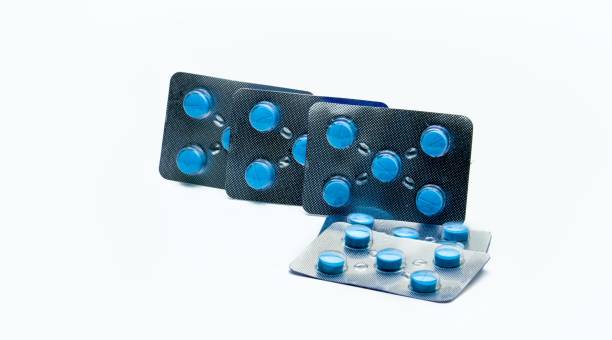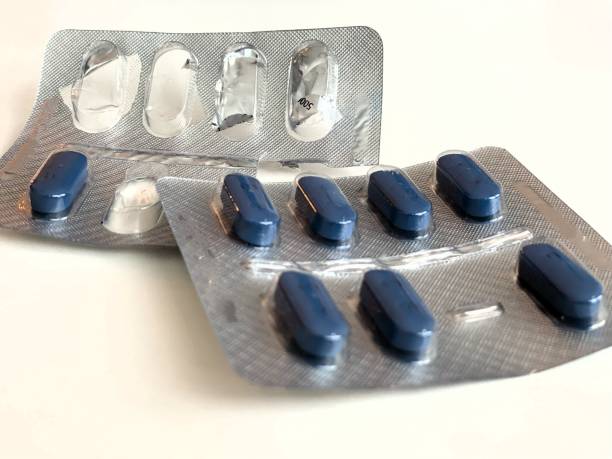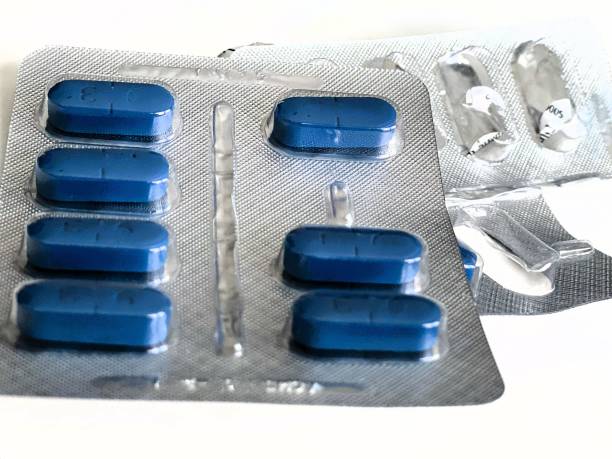Acyclovir belongs to the class of medicines called antivirals. It is used to treat viral infections including genital herpes, chickenpox, and shingles. It comes as a capsule, tablet, Acyclovir oral suspension, and buccal tablet. Acyclovir tablet is available as a generic drug only as it does not come as a brand-name drug. Acyclfovir medications are also available as Acyclovir ointment and cream. Acyclovir sodium injection (Intravenous drug) is only administered by a healthcare provider.
What Is Acyclovir 400 mg Tablet?
Acyclovir 400 mg tablet is the most commonly prescribed strength of this drug. It is a prescription drug and prescription drugs are only available with a doctor’s prescription. Each Acyclovir 400mg tablet contains 400mg of Acyclovir as the active ingredient and the inactive ingredients include microcrystalline cellulose, magnesium stearate, croscarmellose sodium, and colloidal silicon dioxide.
Uses of Acyclovir 400 mg Tablet
This medication is prescribed to treat various infections caused by certain kinds of viruses. Commonly it is used to treat shingles caused by herpes zoster, cold sores around the mouth caused by herpes simplex virus, chickenpox caused by varicella zoster, and genital herpes caused by herpes simplex virus.
Acyclovir 400 mg is also used for the treatment of genital herpes outbreaks. For patients experiencing recurrent herpes outbreaks, Acyclovir is prescribed to help decrease the number of episodes in the future.
Acyclovir antiviral drug is not a complete cure for herpes infections. Once you are exposed to these viruses, they remain in your body for a lifetime. However, Acyclovir reduces the length and severity of these outbreaks. It allows the healing of sores faster and prevents new sore formation reducing the itching and pain.
Acyclovir oral tablet also helps diminish how long the pain stays after the healing of sores. Additionally in patients having weakened immune systems, Acyclovir medication can reduce the risk of the virus transmitting to other body parts and developing serious infections.
Typical Dosage of Acyclovir Oral Tablet

Genital Herpes Dosage
The typical initial dosage is 200 mg PO q4hr five times a day for 10 days or 400 mg PO q8hr for 7 to 10 days. For recurrence treatment, the dosage is 200 mg PO q4hr five times a day for 5 days. The dosage for chronic suppression treatment for recurrence is Acyclovir 400 mg PO q12hr for up to 12 months. Begin with the treatment as soon as you notice the initial symptoms.
Shingles (Herpes Zoster) Dosage
The most prescribed Shingles typical dosage is Acyclovir 800 mg every 4 hours five times a day for 7 to 10 days.
Chickenpox Dosage (Adults)
The most recommended chickenpox typical dosage is Acyclovir 800 mg four times a day for 5 days. Start taking this medicine as soon as you identify the initial signs of chickenpox.
How Does Acyclovir 400 mg Work Against Viral Infections?
Acyclovir possesses activity against herpes viruses including herpes simplex virus types 1 and 2 and varicella-zoster virus. This drug acts as a particular inhibitor of herpes virus DNA polymerase. It is the main enzyme for the lytic phase of infection by herpes viruses that ensures the multiplication of the virus.
Clinical Trials on Acyclovir Safety
Initial Genital Herpes
Acyclovir is broadly prescribed for genital herpes treatment across the world. Studies suggested that when Acyclovir was used orally it pointedly reduced the duration of acute infection and lesion healing. In some patient groups, the extent of pain and formation of new lesions was lessened.
Recurrent Genital Herpes
Various studies were performed on patients who were experiencing frequent recurrences. These studies revealed that when Acyclovir is orally administered every day for 4 months to 10 years it successfully prevented and lessened the frequency and severity of recurrences in more than 95% of patients.
Herpes Zoster Infection
In the studies performed on immunocompetent patients experiencing localized cutaneous zoster infection, Acyclovir reduced the extent of healing, lesion scabbing, and pain and lessened the duration of viral shedding and the extent of new lesion development.
In a similar study, Acyclovir reduced the extent of complete healing, lesion scabbing, pain, and time of new lesion development. It also diminished the occurrence of localized zoster-related neurologic symptoms.
Acyclovir medication was started within 72 hours of the appearance of the rash and was not effective when started within the initial 48 hours. Adults of more than 50 years of age demonstrated better benefits.
Chickenpox
Three randomized trials were performed involving pediatric patients (2 to 18 years) having chickenpox. All patients were given treatment within 24 hours of the appearance of the rash. In 2 trials, Acyclovir was given as 20 mg/kg 4 times every day for 5 days. In 3rd trial doses of 10, 15, and 20 mg/kg were given 4 times every day for 5 to 7 days.
Acyclovir shortened the time of healing to 50% and decreased the number of lesions, median number of vesicles, median number of residual lesions (by day 28), and the proportion of patients experiencing fever, lethargy, and anorexia (by day 2).
Warnings and Precautions for Acyclovir

Just like any other drug, this medication also comes with some warnings that patients should be aware of. Consider these warnings and use this drug accordingly.
Allergic Reactions
Acyclovir may cause an allergic reaction in some patients. Don’t take this medicine if you ever have an allergic reaction to it. Symptoms of an allergic reaction include trouble breathing, swelling on the tongue or throat, rash, and hives. Call your doctor right away if you experience these symptoms.
Kidney-Related Risks
This medicine may stop your kidneys’ function. Inform your healthcare provider if have any existing kidney disease or if you had kidney problems in the past as your body may not eliminate this medicine from the body well and it increases the chances of developing side effects.
This drug may decline your kidney function and make your existing kidney problem worse. Always stay adequately hydrated while you are under Acyclovir treatment. Your healthcare professional will prescribe the dosing based on your kidneys.
Sexual Transmission Warning
Avoid sexual contact if you have signs of a genital herpes outbreak. Acyclovir does not completely cure herpes infections. It can help you lessen the chances of spreading herpes infection to your partner with direct skin contact. However, you can still spread genital herpes infection to others so it is recommended to avoid sexual intercourse or practice safe sex.
Blood-Related Side Effects
This medication may develop hemolytic uremic syndrome and thrombotic thrombocytopenic purpura. These conditions lead to perilously low levels of platelets and red blood cells in your body. The symptoms include low energy and fatigue and these conditions may be fatal.
Use During Pregnancy
Acyclovir is classified as a category B pregnancy drug. This means studies conducted in pregnant animals have not confirmed a possible risk to the fetus and there are inadequate studies conducted in pregnant women to demonstrate if the drug is risky to the fetus or not. If you are pregnant or planning to get pregnant, discuss the possible advantages and risks of this drug.
Use While Breastfeeding
Acyclovir passes into the breast milk and causes side effects in the breastfed child. Tell your doctor if you are breastfeeding your child. Your healthcare professional will advise you whether you need to stop breastfeeding til you are under medication or not.
Elderly Patients
The kidneys of elderly patients may not function as well as they perform in adults and it can make your body process medications more slowly. The outcome is, that more of a medicine remains in your body for a longer period and increases the risk of developing side effects.
Pediatric Patients
Acyclovir medication has not been studied in pediatric patients younger than 2 years of age so it is not prescribed to children below 2 years of age.
Drug Interactions of Acyclovir
Drug interactions may impact how your medicines work and increase the chances of developing side effects. Some common medications that interact with Acyclovir include nonsteroidal anti-inflammatory drugs such as naproxen and ibuprofen. Acyclovir is extremely similar to Valacyclovir so it is recommended not to use these drugs together.
If you need to take multiple drugs (prescription medications or over-the-counter drugs), your doctor will tell you how you can manage your medications carefully to prevent interactions.
Side Effects of Acyclovir
Most patients reported minor side effects of this drug (Including Acyclovir tablet, Acyclovir suspension, and topical ointment) which do not require any treatment. Occurrence of side effects is more common if you use this drug improperly. If you follow your doctor’s recommendations and use this drug appropriately there are fewer chances of experiencing side effects.
Drugs interact differently in different patients and certain drugs affect various patients differently so some may experience side effects and some may not. Acyclovir 400 mg does not cause lethargy however it may cause other side effects. Common side effects of this medicine include nausea, vomiting, diarrhea, headache, and weakness.
Serious side effects of this drug include unusual changes in your behavior and mood (confusion, trouble speaking, aggressive behavior, unsteady movements, hallucinations, coma, and seizures), reduction in platelets and red blood cells (fatigue), liver issues, muscle pain, allergic skin reaction (rash, hair loss, hives, skin breakage), vision changes, and kidney failure (blood in urine, kidney or flank pain).
If you have serious side effects from Acyclovir, call your doctor right away and get medical help.
How to Use Acyclovir Safely

Usually, Acyclovir 400 mg oral tablet is prescribed as a short-term treatment for genital herpes, chickenpox, and shingles. The long-term Acyclovir treatment is prescribed for recurrent genital herpes infection. If you do not take this drug as recommended by your doctor or pharmacist, it may have serious risks.
If you stop taking Acyclovir before the prescribed course of medicine, the symptoms may not get better and even get worse. Never stop taking this drug until you complete the course and do not modify the doses without consulting your healthcare provider.
If you skip, miss doses, or do not take it as the prescribed schedule, this drug may not work as well as it should. When you are prescribed Acyclovir to prevent flare-ups, a certain amount of this drug needs to be in your body every time so take it at even intervals.
If you missed a dose by mistake, take it as soon as you realize. However, if you remember about the missed dose when it is almost time for your next dose, skip the missed one and continue with your normal medical schedule. Never take two doses at the same time to compensate for the missed dose as it can lead to serious side effects.
If you accidentally take too much or higher doses of Acyclovir, you may have a fatal amount of the medicine inside your body and may experience severe side effects. Call your healthcare provider or local poison control center to report the drug overdose. If you have severe symptoms seek immediate medical attention.
Key Safety Considerations
If your doctor has prescribed you Acyclovir oral tablets, make sure you are aware of these considerations.
- Take this medication exactly as recommended by your healthcare professional and do not stop taking this drug suddenly.
- You can take this drug with or without food as suggested by your doctor however taking it with meals may help you reduce stomach issues.
- Do not crush, chew, or cut Acyclovir tablets, swallow the tablet with a glass of water.
- Store this drug at room temperature, away from light, and do not keep it in moist or damp places.
- Drink plenty of water and stay hydrated to make your kidneys work well during the treatment.
Is Acyclovir 400 mg Safe? Bottom Line
Acyclovir 400mg is a safe and successful antiviral medication that is used for the treatment and prevention of genital herpes infections and other herpes infections. Most patients who used Acyclovir medicine have not experienced any negative or severe side effects and reported positive experiences and considerable improvements.
Usually, Acyclovir 400 mg tablets are not unsafe or destructive unless you use them as recommended by your doctor. A very severe allergic reaction or adverse effects of this medicine are rare. Do not take this drug without consulting a healthcare provider.
